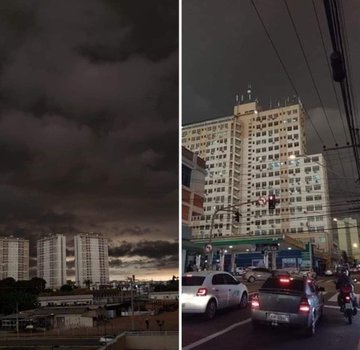 |
| Satellite image showing fires damaging the Amazon rainforest in Brazil |
The Amazon rainforest conjures up an image of a quintessential rainforest. Vast, unknown, and loaded with undiscovered species not known to science in decades past. These are the features that make the Amazon rainforest a paradise for scientists and researchers, whose goal is to study such places in order to ensure they receive significant recognition on a global scale. However, like all rainforests of the world, the Amazon rainforest has been susceptible to deforestation for countless decades. And now recently, that scale of destruction has reached an unprecedented scale with more than 39,000 wildfires that have been devastating the rainforests since January this year. According to Brazil's National Institute for Space Research (INPE), there have been 74,155 fires so far in the Amazon which represents a staggering leap of more than 80% over last year and probably the most that the agency recorded since it started gathering this data in 2013. Roughly half of those fires have flared up last month making it almost as many as in all of 2018. The proliferation of the fires has resulted in darkening of skies over Sao Paulo and other major Brazilian cities. The country's president Jair Bolsonaro has shown apathy about the situation and regularly castigated Brazil's environmental regulations as a hindrance to economic development, and under his term environmental agencies have seen reduction in staff and funding. Among those include the INPE itself, whose leader, Ricardo Magnus Osorio Galvao, was fired this month. According to Galvao, the reason for his discharge was because he suspected how President Bolsonaro was using INPE's data. When asked about the fires by, President Bolsonaro flimsily indicated that nongovernmental organizations have been setting fires as payback for the scaling back of Brazil's normal funding support for them. He hypothesized that these organizations are trying to intensify international pressure on the Brazilian government, but when reporters urged him on the point, he did not name any particular NGOs or give any proof for his assertion. He further added that his government is "not insensitive" to the fires and that it may look into measurements to fight them.
 |
| Smoke from fires clouding over Sao Paulo |
According to Brazil's environment minister Ricardo Salles, the fires have been associated with "dry weather, wind and heat" and stated that federal officials and equipment are available to help and "already in use." However, the deforestation has more to do with human activities than natural factors. INPE stated that the amount of land deforested last month alone represented an almost 300% growth over deforestation in June 2018. As NPR reported in 2015, deforestation like this is generally connected to subsistence farming and ranching, which is known to use more than two-thirds of Brazil's deforested land and has increased the number of cattle in the past thirsty years. It is estimated that forest areas in the Brazilian Amazon have dwindled between 20 and 30% compared to last year. Fluvio Mascarenhas, who works for an agency called the Chico Mendes Institute for Biodiversity Conservation, indicated that the operations the agency conducts against illegal loggers and ranchers have been extremely scaled back this year. He further added that this, along with President Bolsonaro's comments, bolsters more illegal activity in the rainforest.
 |
| Brazilian President Jair Bolsonaro has come under fire regarding his view on the wildfires |
I can never think of anything more cataclysmic than the destruction of the Amazon rainforest caused by wildfires this year. The extent of damage caused by the fires and the impact they are having on Brazil and the rest of South America is so indescribable, that one can easily say that urgent action needs to be taken to prevent further damage. However, the devastation does not seem to faze President Jair Bolsonaro, who baselessly claimed that NGOs are responsible for setting the fires in retaliation for scaling back of the Brazilian government's usual funding support for them. To make matters worse, under President Bolsonaro's tenure, the country's environmental agencies, including the INPE which documented the destruction through satellite imagery, saw reduction in staff and funding. How can such agencies be able to take action to prevent further damage from these wildfires without proper funding from the federal government? This cannot go on! I strongly believe that urgent action needs to taken on a global scale to help Brazil combat the fires. This includes providing funds and support for measurements directed at containing these fires and identifying illegal loggers and ranchers, who are behind the deforestation of the Amazon rainforest. Furthermore, efforts need to be taken to root out corruption in Brazil in relation to the country's deforestation issue and identifying political figures associated with it. The wildfire devastation in the Amazon has reached astronomical proportions and is tremendously impacting people's lives in major cities like Sao Paulo, as well as the local wildlife and indigenous populations that call the rainforest home and it is highly essential to take action.
View article here
No comments:
Post a Comment